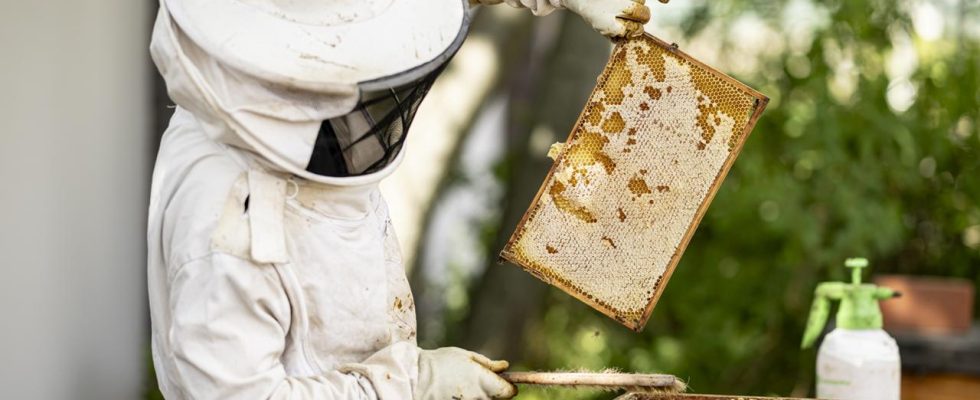Bees have collected a lot of nectar this year thanks to good weather conditions. This enabled beekeepers to extract a lot of honey. Despite the good harvest, honey prices have risen.
The honey harvest is good this year. The specialist center for bees and beekeeping said that beekeepers harvested an average of 36.7 kilograms of honey per colony, 2.3 kilograms more than in the previous year. Compared to the very rainy year of 2021, in which only 18 kilograms were harvested per colony, the harvest quantity is twice as large.
In the statistics kept since 2012, the annual value was only higher in 2018, when it was 36.9 kilos per bee colony. “It was a very good year for bees,” said specialist center manager Christoph Otten. “Thanks to the positive weather, the bees brought in a lot of nectar and the beekeepers were able to extract a lot of honey.”
Bee colonies can collect up to two kilos of honey per day
In the meantime there was also precipitation, but this had only a minor influence on the amount of nectar. “Three or four nice days in a row are often enough for the bees to significantly increase their honey production.” Some colonies can collect up to two kilograms of honey per day under favorable conditions.
There are an estimated 1.1 million bee colonies and 170,000 beekeepers in Germany, the vast majority of whom do this as a hobby or as a sideline. The specialist center for bees and beekeeping is responsible for an industry survey, for which this time beekeepers submitted around 13,000 reports – divided into a survey on the early harvest, i.e. the spring harvest, and a survey on the summer harvest.
Higher costs cause honey prices to rise
According to the survey, beekeepers charge 6.50 euros per 500 gram jar of honey, which is around five percent more than last year. “The business costs have increased significantly, so price increases were overdue and still often did not cover costs,” says industry expert Otten. The price of winter food for bees has roughly doubled within a year.
Local beekeepers are also very worried about cheap imports from abroad. Beekeepers see the Asian hornet as a threat. This is an invasive species that preys on bees and thereby affects a colony’s collecting behavior. “We have passed the first year in which the Asian hornet appeared massively in Saarland and Rhineland-Palatinate for the first time,” says bee expert Otten. “So far we have only received a few reports of damage, but we definitely have to keep an eye on it.”

